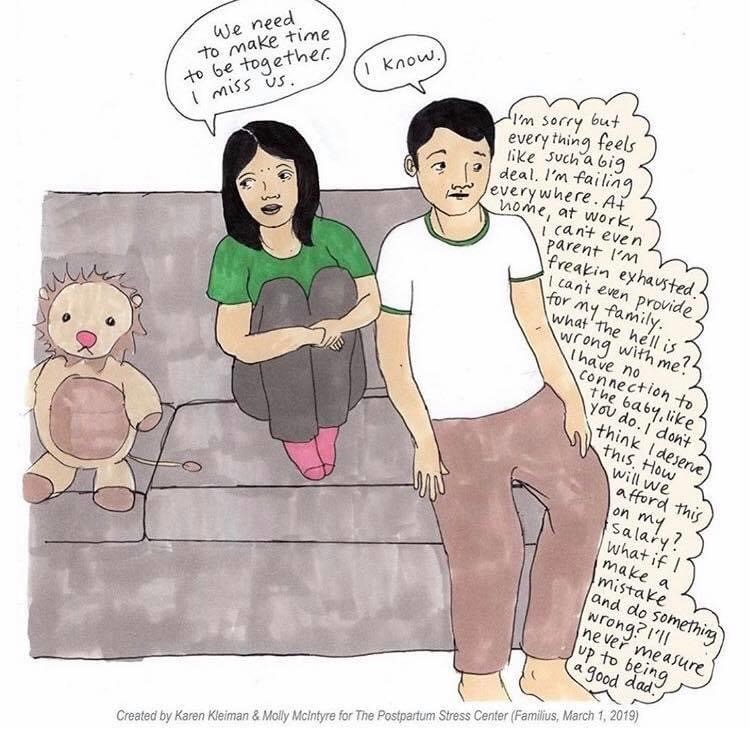What is Perinatal Mental Health?
The term “perinatal,” refers to the period from conception up until one year postnatal. However, my own opinion is that the perinatal period starts when you start considering having a family, and is ongoing, it doesn't just magically stop when your baby turns one, which is when the perinatal period is classed as over in medical terms.
During the perinatal period, and even afterwards, birthing people and their partners/carers of the child are vulnerable to experiencing mental ill health, partly because pregnancy can be a worrying time but also because of the many changes that occur physically, emotionally, and practically.
Will the baby be OK at the scans? How will the labour be? How will we cope as a family? These are typical worries many experience during pregnancy, and not just the birthing person. After birth, worries then tend to focus on the baby. What if my baby stops breathing? Are they feeding enough? Am I interacting with them properly? Hands up if you are the partner and have worried about your baby, or felt down at some point in your own journey?
What Mental Health Problems Can Occur In The Perinatal Period?
During an already exhausting time, these anxieties can really take their toll and can cause low mood. We all hear about Postnatal Depression, but problems can also be around anxiety too. It has been found that the perinatal period is the time that we are most vulnerable to the development of anxiety and/or mood disorders than any other time in our lives.
Postnatal Depression tends to be associated with feeling low, tired, down, with a lack of energy and motivation to do things, eating and sleeping changes, anger and irritability and intrusive thoughts. If one parent experiences Postnatal Depression, the other parent is up to 50% more likely to develop it themselves. Experiencing a mental health difficulty can have a significant impact on your life and relationships.
In terms of anxiety, the typical things anxious parents tend to focus on are related to excessive worrying about lots of things, or being overly worried about specific areas, such as yours or your baby's health. Others are around Perinatal OCD, where parents become overly worried about preventing harm and danger, leading to compulsions and rituals. Some experience anxiety about social situations and being judged by others. Parents can also experience what we call Specific Phobias (for example needle phobia), and Perinatal Trauma.
Can Mental Health Problems Happen To Anyone?
Those who have a pre-existing mental health condition are at higher risk of their condition deteriorating. However, those who do not have a history of mental health problems can also experience perinatal mental illness.
We know that both mums and their partners can experience perinatal mental illness. Did you know a partner watching their wife during a traumatic birth can experience PTSD as a result? Or a mum who has always been a worrier can develop maternal OCD after the birth of their child?
It is not meant to sound all doom and gloom because having a new baby is wonderful and exciting too. But I am passionate about raising awareness about mental ill health and how it can present itself at this time. The more prepared we are with facts and knowledge, the better we are at recognising the signs if things become too difficult.
The important thing to remember is there is hope that things can improve, and recovery is entirely possible with the right support and treatment. If you want to hear more about how to spot the signs and symptoms of the common perinatal mental health difficulties mentioned above, why not book your place on my antenatal class for your mental health?
If you want to keep up to date with my more frequent content, come and follow me on Instagram where I post about all things maternal mental health, motherhood and psychotherapy.
Useful Links
Hold The Mother Podcast Episode 2: What Is A Mental Health Midwife?
Health Anxiety In Pregnancy & After Birth
How To Survive The Fourth Trimester
